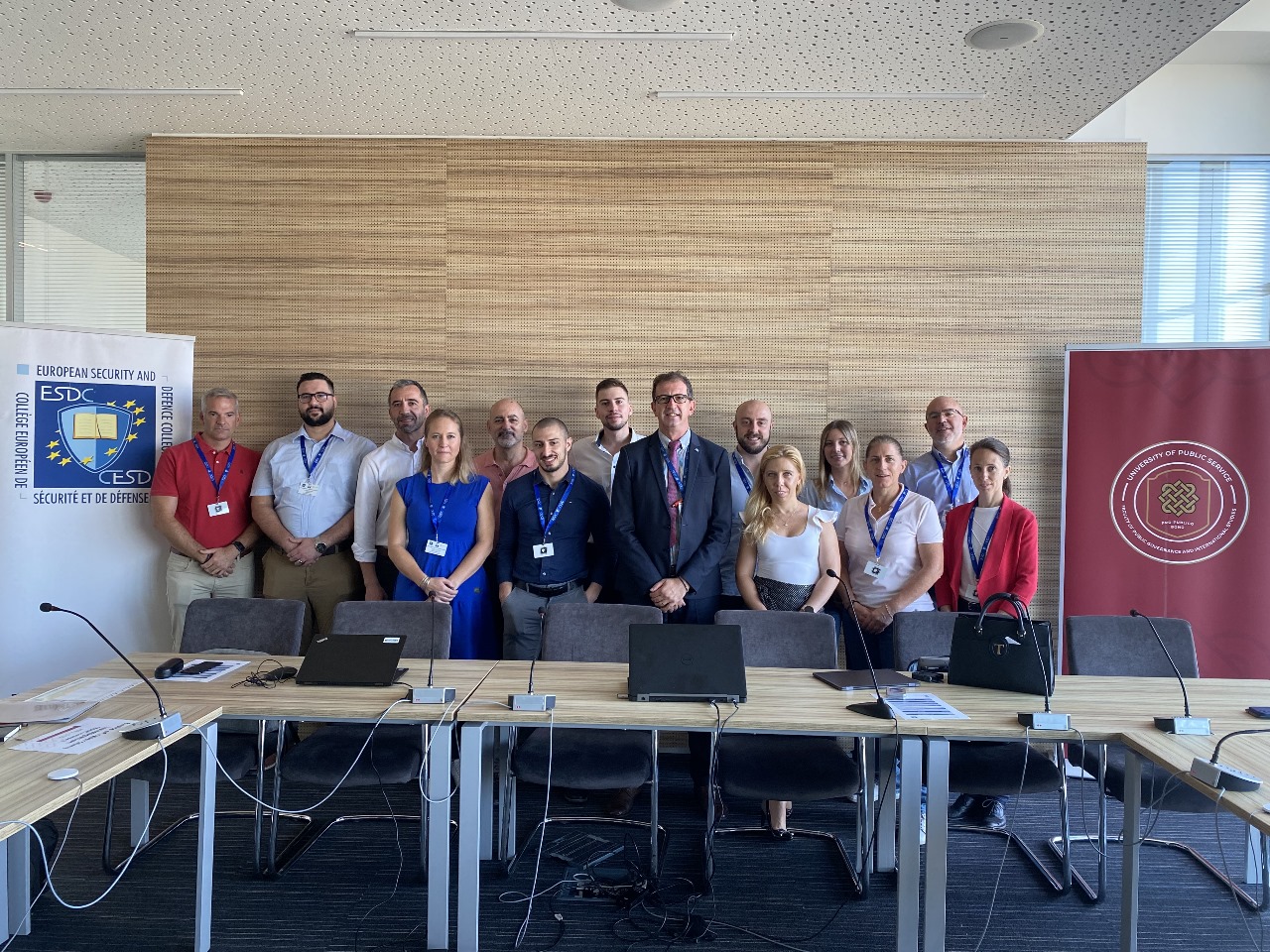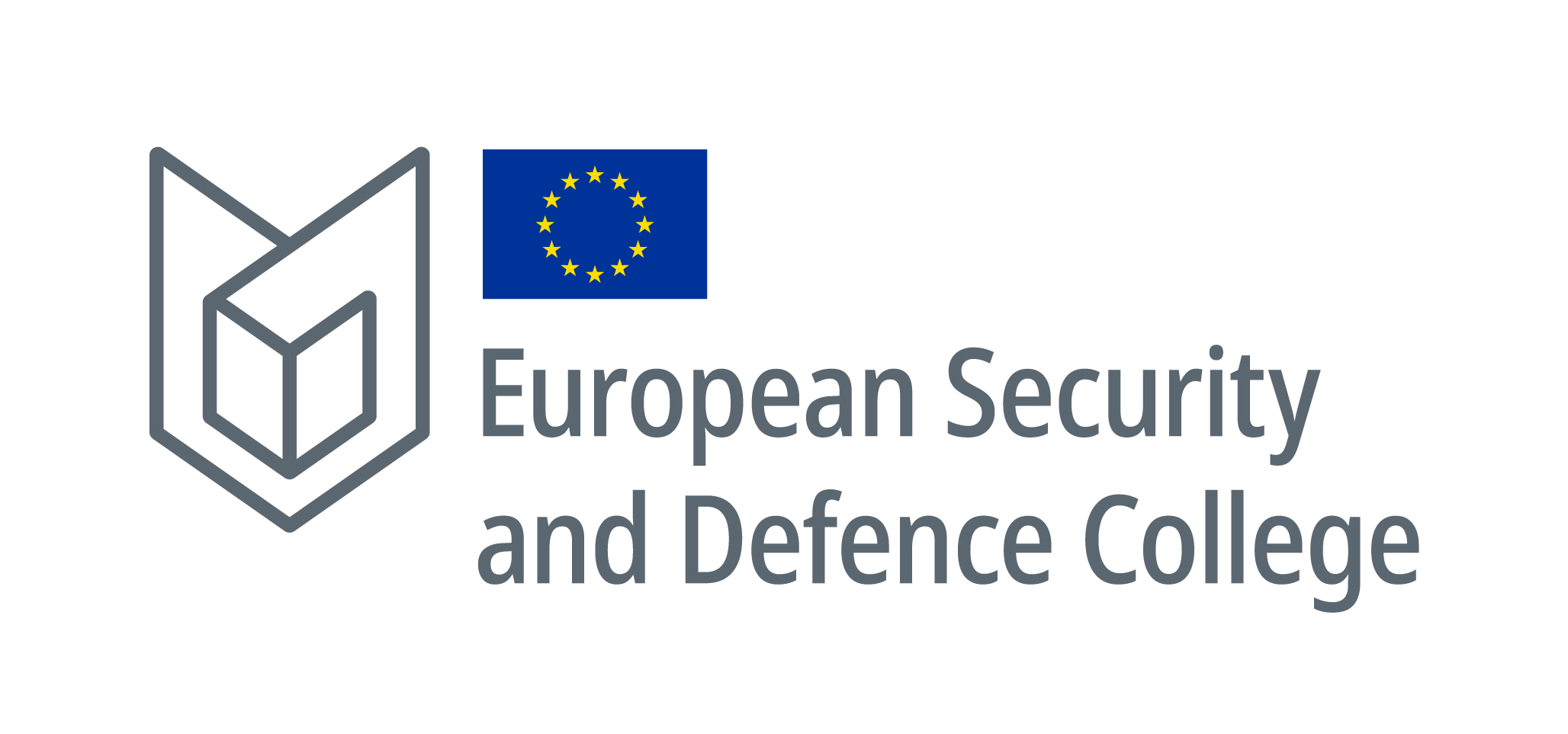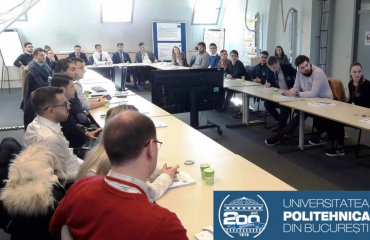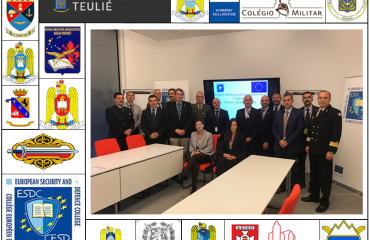 The pilot course was organised for the first time to provide a comprehensive overview of the characteristics, types, future trends of cybercrime, its material, procedural and international legal aspects; to introduce the tasks of international organisations in the context of cybercrime; and to present the basics of digital forensics to record electronic data lawfully and professionally, as well as related knowledge of criminal procedure and criminalistics.
The course was opened by Dr Csaba Krasznay, course director of the Ludovika University of Public Service and Mr Giuseppe Zuffanti, cyber training manager and expert of the European Security and Defence College (ESDC), who gave welcoming remarks, an overview of the course and an extremely useful tour of table. They also gave a talk on ‘Trends of cybercrime’ and the ‘EU’s approach to cybercrime’ respectively.
The pilot course was organised for the first time to provide a comprehensive overview of the characteristics, types, future trends of cybercrime, its material, procedural and international legal aspects; to introduce the tasks of international organisations in the context of cybercrime; and to present the basics of digital forensics to record electronic data lawfully and professionally, as well as related knowledge of criminal procedure and criminalistics.
The course was opened by Dr Csaba Krasznay, course director of the Ludovika University of Public Service and Mr Giuseppe Zuffanti, cyber training manager and expert of the European Security and Defence College (ESDC), who gave welcoming remarks, an overview of the course and an extremely useful tour of table. They also gave a talk on ‘Trends of cybercrime’ and the ‘EU’s approach to cybercrime’ respectively.
 The course included presentations by several lecturers who, in addition to being lecturers, PhD students or graduate students at the Ludovika University of Public Service, play an important role in Hungarian organisations involved in the fight against cybercrime. Employees of CEPOL, the Hungarian National Bank, the National Bureau of Investigation’s Cybercrime Department, the Hungarian Defence Forces and Cyber Services, one of the most well-known Hungarian cyber security companies, among other people, shared their cybercrime experiences with the interested course participants.
The participants were law enforcement, civilian, military medium-rank personnel from the Member States who had the opportunity to network and discuss views and perspectives with each other and cybersecurity professionals.
The intensive three-day course – which is one of several cyber activities organised by the ESDC’s Cyber ETEE platform (cyber education, training, exercise and evaluation), – could, after the ESDC approval process, become part of the standard list of the ESDC’s official curriculum approved by the 27 EU Member States.
The ESDC would like to thank, first of all, the Ludovika University of Public Service, whose primary goal is to educate future public administration officials, military and law enforcement officers (in bachelor’s and master’s programmes) and to develop the skills and know-how of current public service officials (through further training programmes). Secondly, we would like to thank the speakers/experts and of course all the participants for their proactive participation and commitment.
The course included presentations by several lecturers who, in addition to being lecturers, PhD students or graduate students at the Ludovika University of Public Service, play an important role in Hungarian organisations involved in the fight against cybercrime. Employees of CEPOL, the Hungarian National Bank, the National Bureau of Investigation’s Cybercrime Department, the Hungarian Defence Forces and Cyber Services, one of the most well-known Hungarian cyber security companies, among other people, shared their cybercrime experiences with the interested course participants.
The participants were law enforcement, civilian, military medium-rank personnel from the Member States who had the opportunity to network and discuss views and perspectives with each other and cybersecurity professionals.
The intensive three-day course – which is one of several cyber activities organised by the ESDC’s Cyber ETEE platform (cyber education, training, exercise and evaluation), – could, after the ESDC approval process, become part of the standard list of the ESDC’s official curriculum approved by the 27 EU Member States.
The ESDC would like to thank, first of all, the Ludovika University of Public Service, whose primary goal is to educate future public administration officials, military and law enforcement officers (in bachelor’s and master’s programmes) and to develop the skills and know-how of current public service officials (through further training programmes). Secondly, we would like to thank the speakers/experts and of course all the participants for their proactive participation and commitment.




